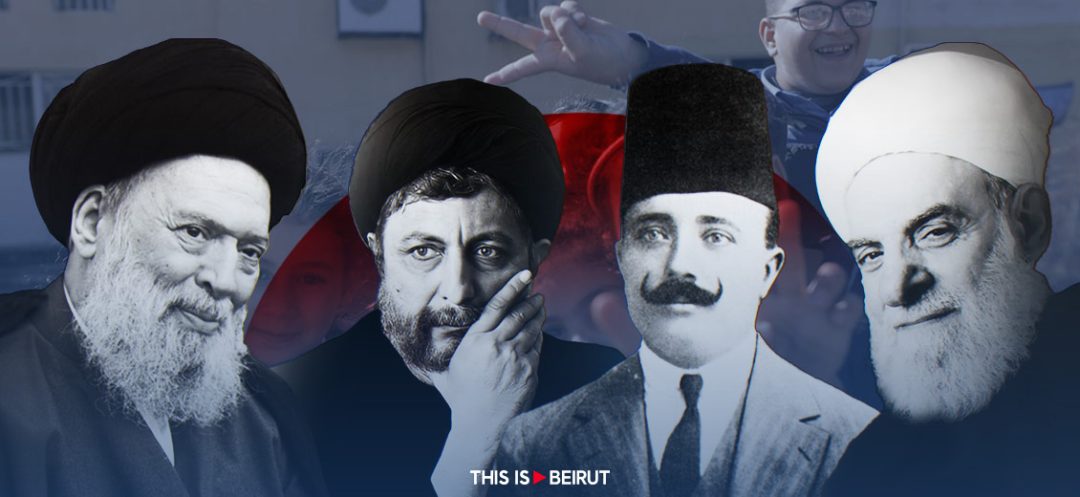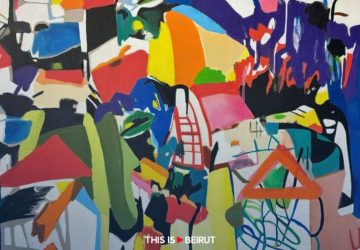Listen to the article
Nothing is solely black or white in any political dynamic, especially when dealing with the cynical and unpredictable “game of nations” that can often defy understanding, especially if the intelligence services of antagonistic parties get involved! For sometimes, the “raison d’Etat” has motives that reason itself cannot comprehend… This is mostly the case in situations of non-belligerence, in the absence of widespread armed conflict. However, in times of total war or genuine existential crisis, a Manichaean interpretation of a given situation becomes unavoidable. There can be no talk then of a middle ground, of an attitude that resides in a “grey area.” When facing an existential crisis, taking sides becomes imperative, especially when choosing between two starkly contrasting societal projects that are diametrically opposed to each other.
In the context of Lebanon, this rings true for the longstanding dynamics within the Shiite community, serving as just one example among many. This insight is drawn, by extension, from a compelling series of four documentaries produced by our colleague Maxime Pluvinet. These documentaries, published on This is Beirut, shed light on four non-partisan Shiite organizations that have been working diligently and professionally for a long time in the fields of education and social and human development*.
These four documentaries highlight a reality whose macro-political and societal significance is of utmost importance, both for all Lebanese citizens and for the very future of the Country of the Cedar in terms of its political system. In fact, they fundamentally shed light on a significant divergence within Shiite circles regarding political and public action. On the one hand, Hezbollah consistently promotes a belligerent and confrontational discourse, advocating for the creation of a militant society devoid of clear goals and real prospects. This perspective fosters a “culture of martyrdom and death,” with little concern for the impact of such a position on the population’s living conditions. On the other hand, the second vision is clearly portrayed in Maxime Pluvinet’s four documentaries, which harmoniously put forward a rhetoric advocating openness to the Other, respect for the right to difference, commitment to moral and humanistic values, and above all, citizenship within the Lebanese entity, as a priority overriding any regional considerations.
These actions are carried out by the four non-partisan associations, launched several decades ago — three of which amidst the civil war — by eminent religious figures and influential personalities within prominent Shiite families, namely Imam Moussa Sadr, Imam Mohammed Mehdi Chamseddine, Ayatollah Mohammed Hussein Fadlallah, and the Beydoun family.
On the other hand, these individuals’ civic engagement and their Lebanese allegiance did not preclude their commitment to the idea of resistance against Israeli aggression in the South. This national resistance initially took the form of a call for civil disobedience against the occupiers, as mentioned in 1983 in Chamseddine’s fatwa. However, this national resistance was swiftly hijacked and exploited by Hezbollah, which hereby replaced it with an ongoing state of warfare devoid of clear objectives, subjecting the population of the South to various hardships. Yet, not one single inch of “Palestine” was liberated…
A belligerent Hezbollah, the armed (and destructive) proxy of a regionally hegemonic power, clashing with deeply rooted pillars of influence, undoubtedly devoted to their Shiite faith and traditions, yet displaying a Lebanese position and tirelessly pursuing (constructive and non-destructive) actions based on human and societal development, openness, a willingness to dialogue, and an utter respect for the right to be different. An undoubtedly Manichean perspective that aptly mirrors the reality of two conflicting schools of thought deeply entrenched within the Shiite community, not only in Lebanon but also across the region, including Iran.
These two schools of thought are embodied in two key works: the political testament of Mohammed Mehdi Chamseddine and Sheikh Naim Kassem’s book on Hezbollah. In the former, Sheikh Chamseddine calls on Shiites across the region not to pursue their own (transnational) agenda, and in the case of Lebanon most specifically, he adopts a clear Lebanese stance, taking into account the sensitivities and concerns of Christians by urging his followers to permanently abandon any project aimed at abolishing political sectarianism. On the other hand, Sheikh Naim Kassem emphasizes Hezbollah’s absolute and unconditional allegiance to the Supreme Leader of the Iranian Islamic Revolution (the walih el-faqih) for all strategic decisions (especially those regarding war and peace), while also glorifying the cult of martyrdom, depicted as an honor and a “duty” for every Shiite family.
These two visions are clearly irreconcilable, and every Lebanese citizen must take a stand in this matter due to the significant impact each of these societal projects will have on Lebanon’s future and the prospective political system.
A fundamental point must be highlighted in this regard: the Lebanese stance of the founders and leaders of the four associations featured in the aforementioned documentaries, as well as their openness and commitment to humanistic values, in no way negate the pluralistic reality of Lebanese society. These are shared values, unifying common grounds that could be capitalized upon for a national project based on the essential recognition of the specificities of the various socio-communal components of the Lebanese social fabric.
By respecting and institutionalizing the right to diversity within constitutional frameworks, and if based on solid foundations, Lebanese pluralism can become a source of wealth instead of perpetually being a cause of internal conflict.






